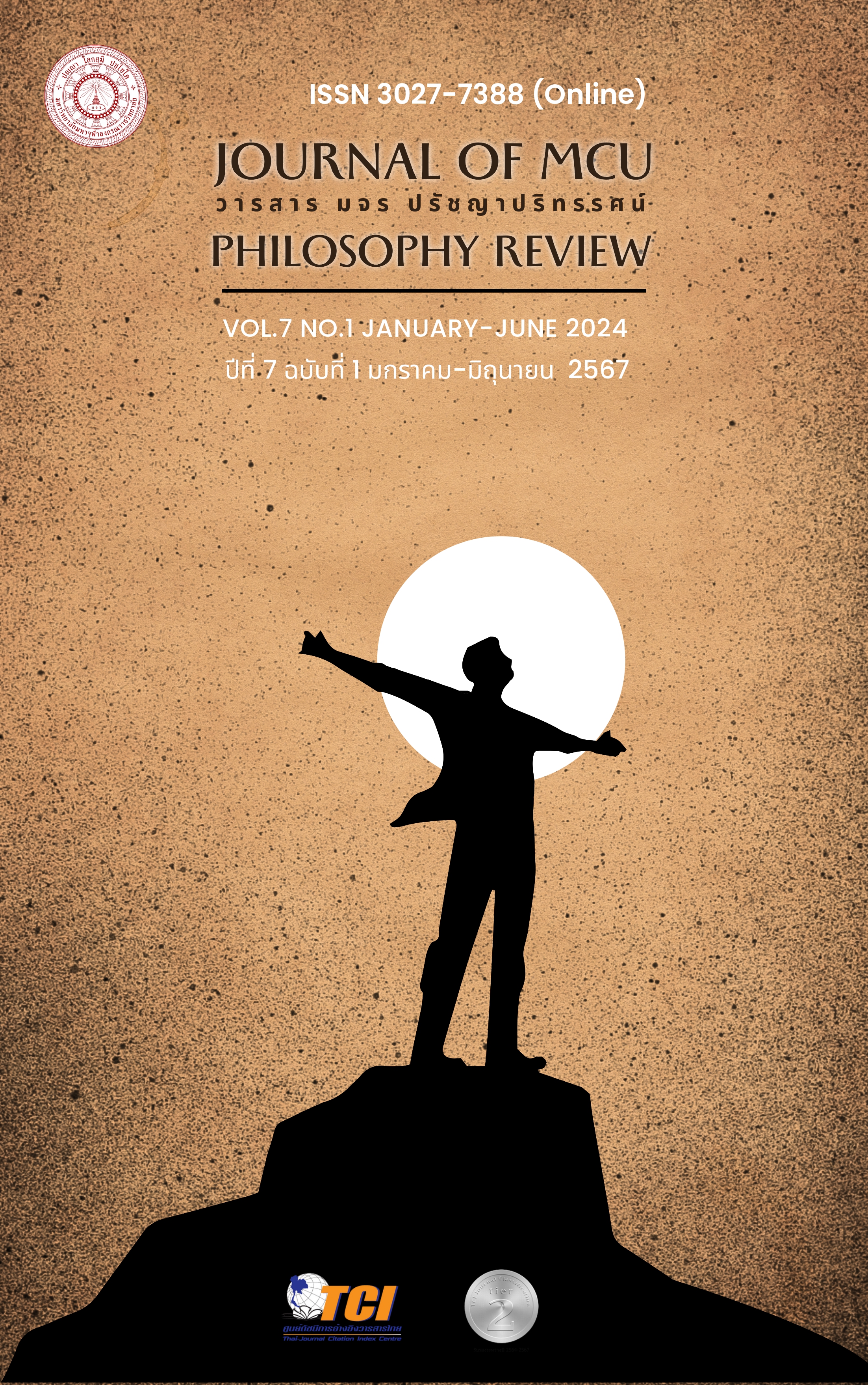The Business Ethics Sale Online in Buddhist and Muslim: A Case Study of Bangchalong Sub-District, Samutprakarn Province
Main Article Content
Abstract
This Research Article has the Objective. 1) To Study Online Selling Concepts in the Current Situation. 2) To Study Business Ethics in Online Sales in Theravada Buddhism and Islam. 3) The Business Ethics Sale Online in Buddhist and Muslim: A Case Study of Bangchalong Sub-District, Samutprakarn Province. This research employed the documentary research methodology and in-depth interviews. It was found that 1) The Concept of Online Selling in the Current Situation is The Application of Internet Media in Conducting Business. It Uses the Internet as a Medium for Collecting the Products of Buyers and Sellers on a Website. Or Platform. To Facilitate Trading contacts, it is a Quick Response to the Needs of Buyers. You can also Compare Prices and Services from Various Stores to Help Make Purchasing Decisions. 2) A Study of Business Ethics in Online Sales in Theravada Buddhism and Islam. It was Found that Business Operations in Theravada Buddhism Focus on Principles of Professional Conduct. That is, Working Without Harming Others to Train the Behavior of Those Who Work to Adhere to Goodness as the Main Principle Islamic Business Operations Focus on Honesty Because it is an Important Variable for Success in Every Matter, Especially in Doing Business, it Creates Credibility with Buyers. 3) A Comparative Study of the Online Sales Business Ethics of Buddhists and Muslims: A Case Study of Bangchalong Sub-District, Samutprakarn Province. It was Found the There was Consistency in Terms of Honesty. Because Honesty Creates Credibility for Yourself. The Difference is That When Selling Products to Muslims, The Qualifications for Selling are Clearly Specified: 1) The Product is Clear, Indicating Complete Details of the Product. 2) The Product Pirce is Clear. 3) Offering and Accepting 4) It is Ownership, Possession, and Authority over Goods.
Article Details

This work is licensed under a Creative Commons Attribution-NonCommercial-NoDerivatives 4.0 International License.
บทความที่ได้รับการตีพิมพ์เป็นลิขสิทธิ์ของวารสาร มจร ปรัชญาปริทรรศน์
ข้อความในบทความที่ได้รับการตีพิมพ์ในวารสาร ถือเป็นความรับผิดชอบของผู้เขียนบทความ และข้อคิดเห็นนั้นไม่ถือว่าเป็นทัศนะและความรับผิดชอบของกองบรรณาธิการวารสาร มจร ปรัชญาปริทรรศน์
References
จินตนา บุญบงการ. (2558). จริยธรรมทางธุรกิจ. พิมพ์ครั้งที่ 16. กรุงเทพมหานคร: โรงพิมพ์แห่งจุฬาลงกรณ์มหาวิทยาลัย.
นิพล แสงศรี. (2560). “ธุรกิจและการลงทุนกับมุสลิมในอาเซียน”. วารสารบัณฑิตศึกษามหาวิทยาลัยราชภัฏ วไลยอลงกรณ์ ในพระบรมราชูปถัมภ์. 11(2), หน้า 75.
พระพรหมคุณาภรณ์ (ป.อ.ปยุตฺโต). (2554). พจนานุกรมพุทธศาสน์ ฉบับประมวลศัพท์. พิมพ์ครั้งที่ 16. กรุงเทพมหานคร : โรงพิพม์มหาจุฬาลงกรณราชวิทยาลัย.
สมาคมนักเรียนเก่าอาหรับ ประเทศไทย. (มปป.). พระมหาคัมภีร์อัลกุรอาน. ไม่ปรากฏสถานที่พิมพ์: ไม่ปรากฏสำนักพิมพ์.
พัฒน์นรี ฉัตรพิสุทธิ์. (2560). “พุทธจริยธรรมสำหรับผู้ประกอบธุรกิจอสังหาริมทรัพย์”. วารสาร มจร การพัฒนาสังคม. 2(1), หน้า 86-96.
มหาจุฬาลงกรณราชวิทยาลัย. (2539). พระไตรปิฎกภาษาไทย ฉบับมหาจุฬาลงกรณราชวิทยาลัย. กรุงเทพมหานคร: โรงพิมพ์มหาจุฬาลงกรณราชวิทยาลัย.
มูฮัมมัด อัชรอฟ อัลอาซีม อาบาดีย์ม. (อศ1415). เอานิลมะบูด ซาเราะฮสุนันอาบีดาวูดม. พิมพ์ครั้งที่ 2. เบรุต: ดารุล กุตุบ อิลมิยะฮ.
ศิลปพร ศรีจั่นเพชร. (2552). “จริยธรรมทางธุรกิจกับบรรษัทภิบาล”. วารสารบริหารธุรกิจ. 32(123), หน้า 1.
หรรษมน เพ็งหมาน. (2559). “จริยธรรมทางธุรกิจเพื่อความยั่งยืนของธุรกิจค้าปลีก”. Veridian E-Journal, Silpakorn Universit ฉบับภาษาไทย สาขามนุษยศาสตร์ สังคมศาสตร์ และศิลปะ. 9(1), หน้า 815-828.


